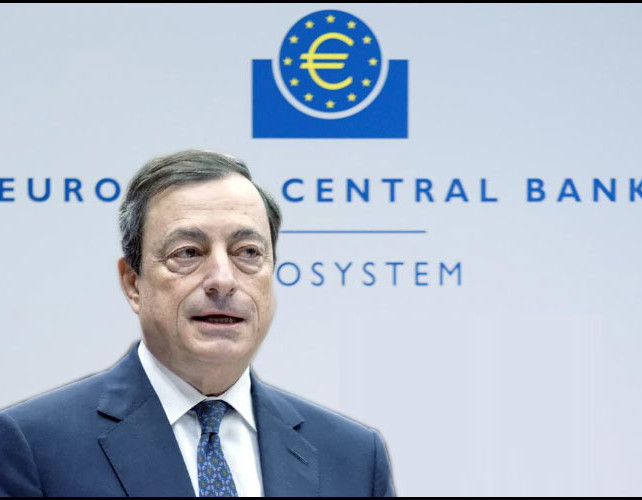
The European Central Bank announced on Thursday that it will trim its massive stimulus from January, but will continue them for nine months, while a dovish Mario Draghi refused to call the move "tapering" and signaled room for a reversal of stance if the euro area economic outlook worsens.
Monthly asset purchases under the asset purchase programme, or APP, will continue at the current monthly pace of EUR 60 billion until the end of December 2017, the bank said.
From January 2018, the net asset purchases will be reduced to a monthly pace of EUR 30 billion, which will continue until the end of September 2018, or beyond, if necessary, and in any case until the Governing Council sees a sustained adjustment in the path of inflation consistent with its inflation aim, the bank added.
The ECB left all its three interest rates at record lows for a thirteenth successive month.
"Today's monetary policy decisions were taken to preserve the very favorable financing conditions that are still needed for a sustained return of inflation rates towards levels that are below, but close to, 2 percent," ECB President Draghi said in his statement.
"The recalibration of our asset purchases reflects growing confidence in the gradual convergence of inflation rates towards our inflation aim."
Draghi has pinned his hopes on an increasingly robust and broad-based economic growth in the euro area, a pick-up in core inflation and the pass-through of policy measures to the financing conditions of the real economy.
That said, Draghi pointed out that domestic price pressures are still muted overall and the economic outlook and the path of inflation remain conditional on continued support from monetary policy.
"Therefore, an ample degree of monetary stimulus remains necessary for underlying inflation pressures to continue to build up and support headline inflation developments over the medium term," Draghi said.
"This continued monetary support is provided by the additional net asset purchases, by the sizeable stock of acquired assets and the forthcoming reinvestments, and by our forward guidance on interest rates."
The ECB retained the guidance on both interest rates and asset purchases that may help to ease the upward pressure on the euro and bond yields.
"The Governing Council continues to expect the key ECB interest rates to remain at their present levels for an extended period of time, and well past the horizon of the net asset purchases," the bank said.
In the June policy announcement, Draghi adjusted the forward guidance to drop the easing bias on interest rates.
Many hope that the tapering move announced on Thursday would be the beginning of the end of an ultra-easy monetary policy since the 2007-08 global financial crisis that saw a daring Draghi test the limits of unconventional policy by taking deposit rates to negative territory and buying corporate and state debt.
During the press conference, Draghi said that the latest decisions were not unanimous with the Governing Council having a broad consensus on some issues and a large majority on some.
A large majority of policymakers preferred to have the APP open ended, he said. Draghi also said that the bank plans to keep the program flexible enough to cope with changing economic conditions. The APP is not going to stop suddenly, he added.
The ECB chief also said that the rate-setting body did not discuss alternative scenarios, policy sequencing and the composition of APP on Thursday.
The bank will continue buying sizable quantities of corporate bonds under the APP, he said.
Draghi stressed that the stock of purchased assets is "sizeable" and has become more and more important. He also pointed out that the guidance on reinvestment was not related to interest rates.
The principal payments from maturing securities purchased under the APP will be reinvested for an extended period of time after the end of net asset purchases, and in any case for as long as necessary, the bank said.
"This will contribute both to favorable liquidity conditions and to an appropriate monetary policy stance," Draghi added.
He described the risks to the euro area growth outlook as "broadly balanced" and expects core inflation to gradually pick up. The foresees a V-shaped form of inflation in future, Draghi said.
Draghi urged policymakers from other fields to "contribute decisively to strengthening the longer-term growth potential and reducing vulnerabilities".
Further, he reiterated that the implementation of structural reforms in all euro area countries needs to be substantially stepped up.
He also sought intensifying efforts from all countries towards achieving a more growth-friendly composition of public finances.
Acknowledging that the developments in Catalonia were significant, Draghi said it was too early to call it a financial stability risk.
by RTT Staff Writer
For comments and feedback: editorial@rttnews.com
Business News

